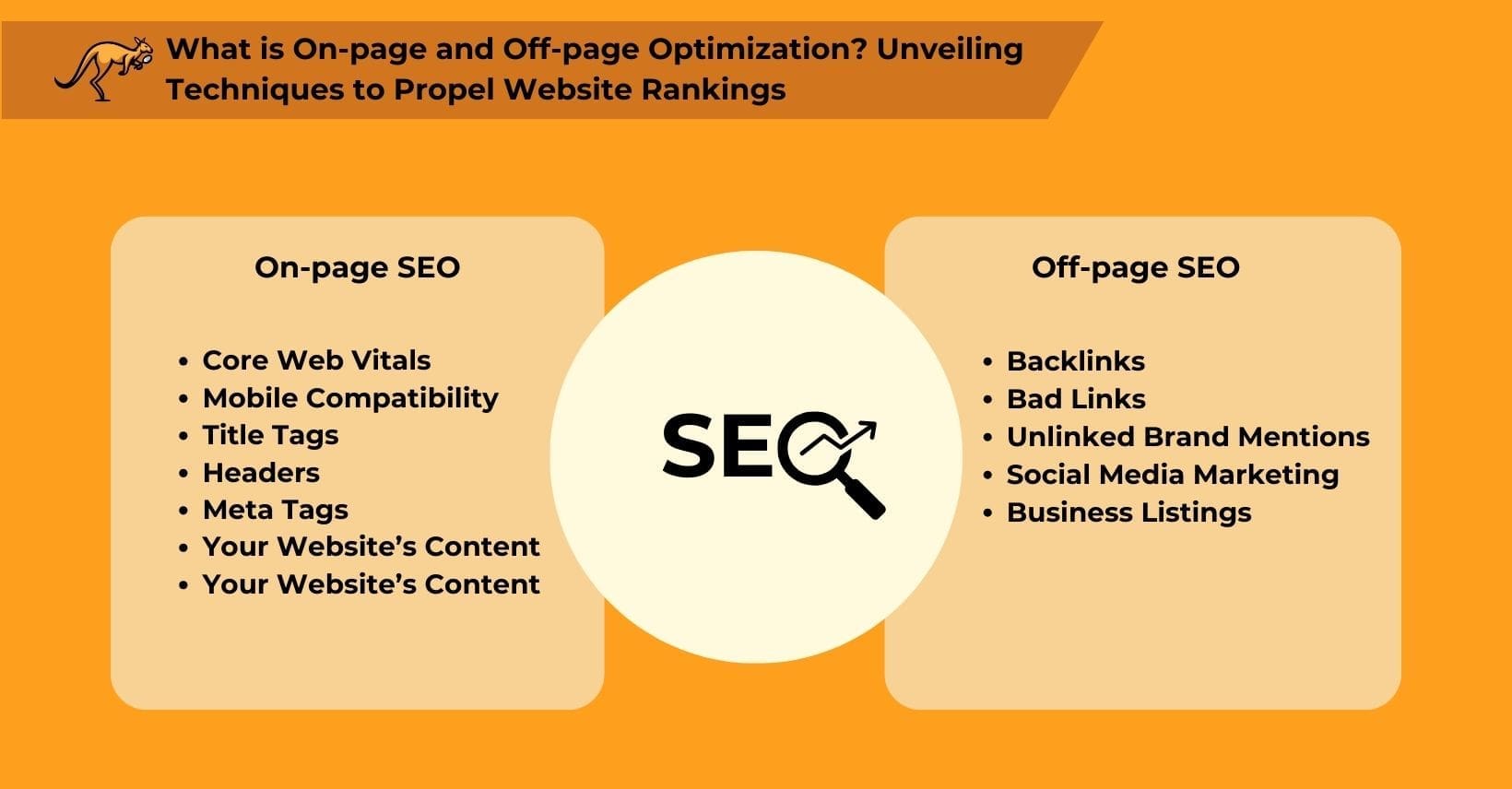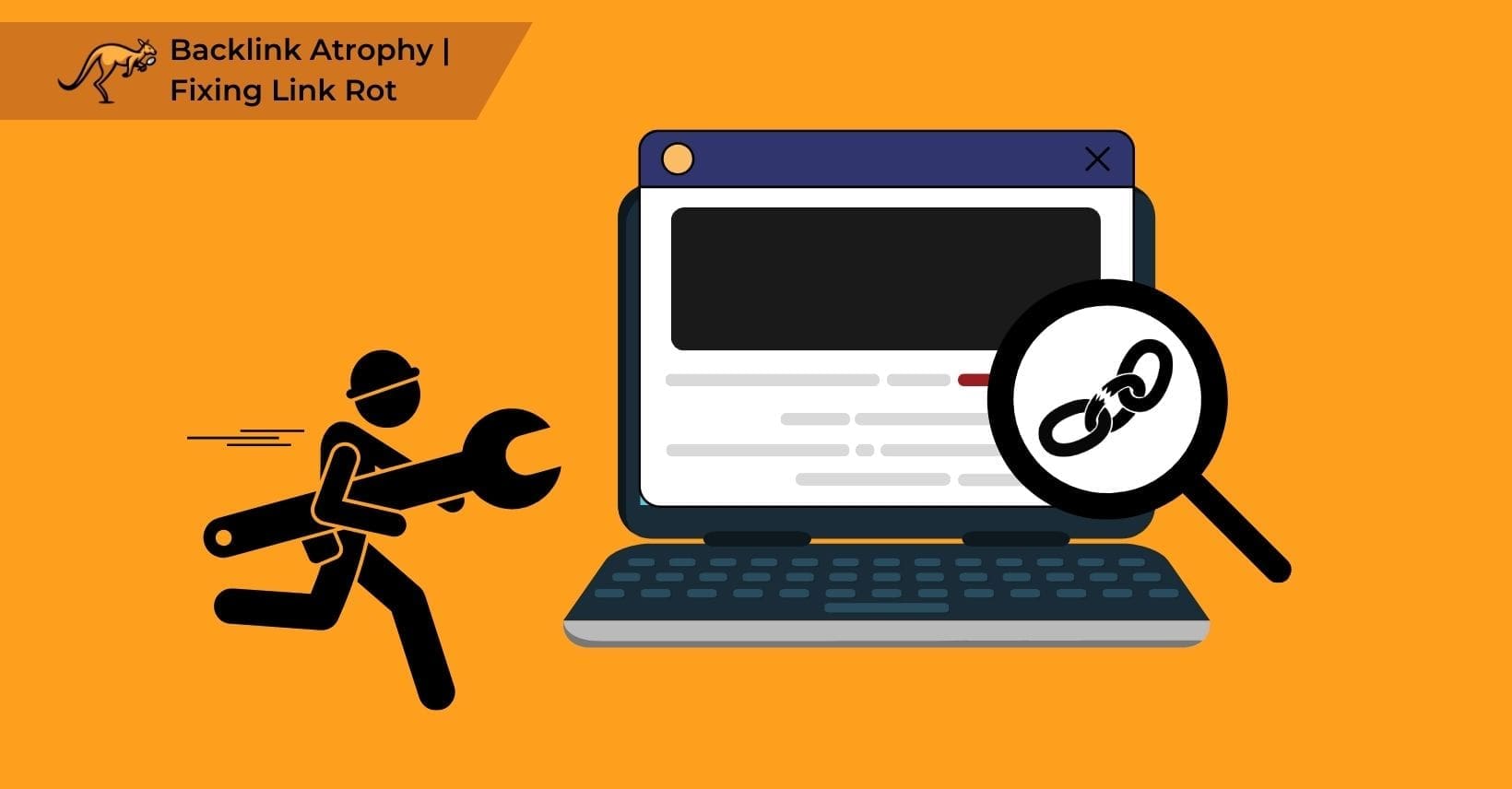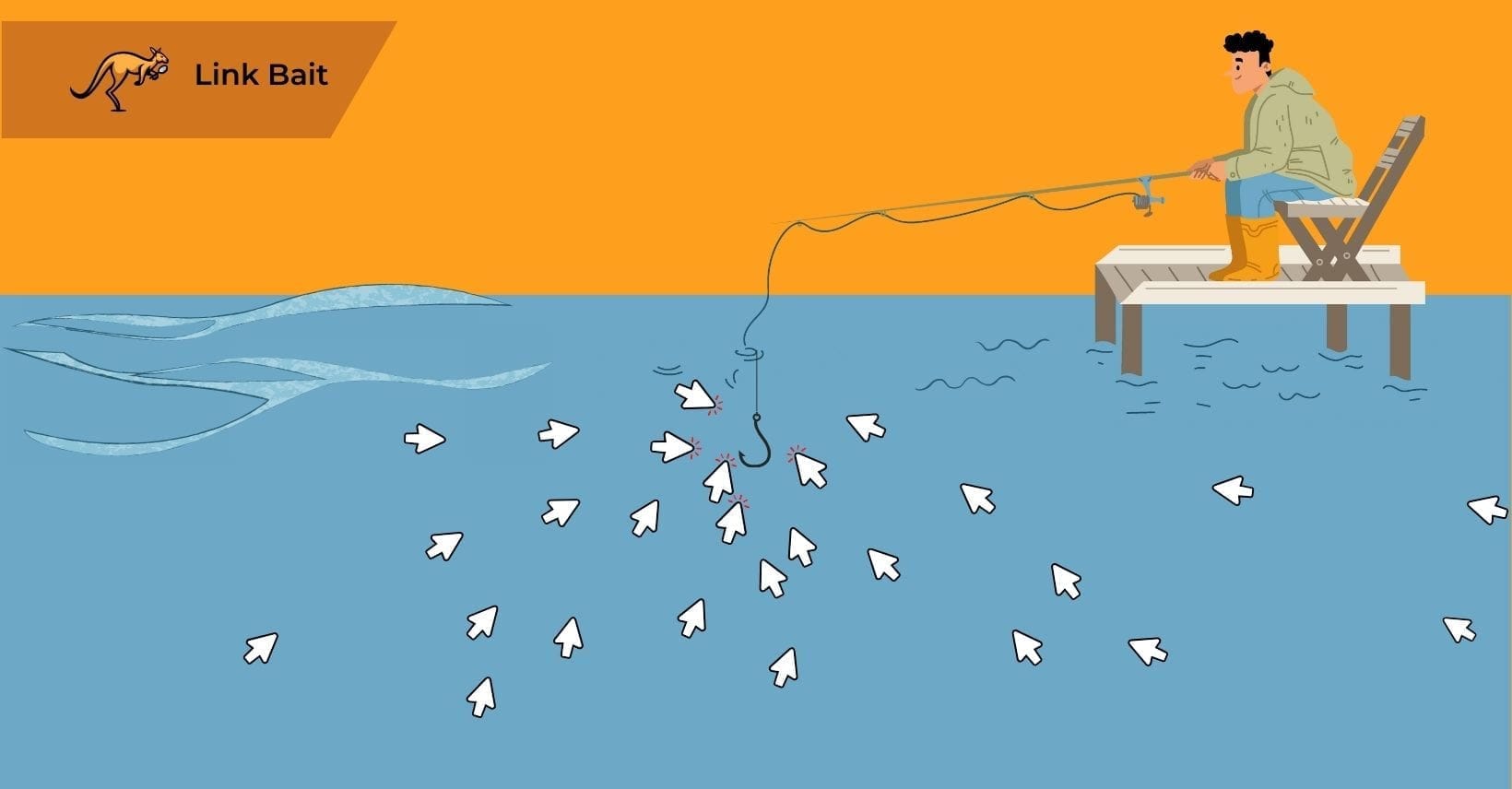Search Engine Optimization can involve a wide range of tasks and techniques, all of which have their own benefits and long-term goals. However, breaking these tactics down into categories helps when ranking higher in search engines.
Overall, there are two core types of SEO to focus on: on-page SEO and off-page SEO. While both are extremely important in boosting your search engine rankings, understanding the differences and how they impact your rankings can be extremely important in getting the job done well.
But what are these two SEO techniques, and how are they meant to be used?
Understanding SEO
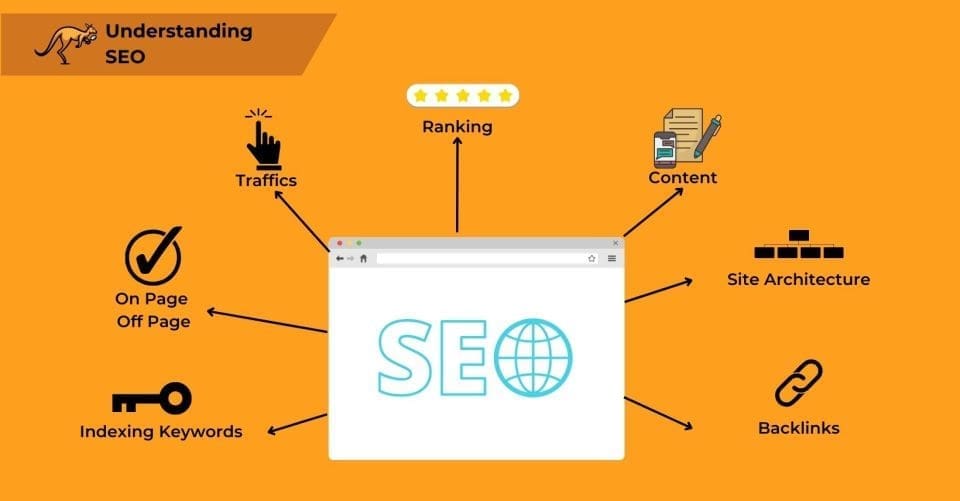
While you already know a fair amount about SEO, it is important to recap the goal of SEO quickly for context.
SEO focuses on ranking your website through various factors, from internal work done on the site itself to outside links that push your website’s ranking position higher overall. This means that SEO can involve many different sites alongside your own, either as placements for links or natural sources of links and traffic.
In general, SEO can be broken down into two distinct types:
- On-page SEO focuses on work done within your site itself – both on a content and technical level, which includes optimizing HTML elements, content quality, and site structure to improve search visibility.
- Off-page SEO encompasses techniques that go beyond the site itself, which involves building backlinks, social signals, and other external factors that boost your website’s authority and reputation.
What is On-Page SEO?
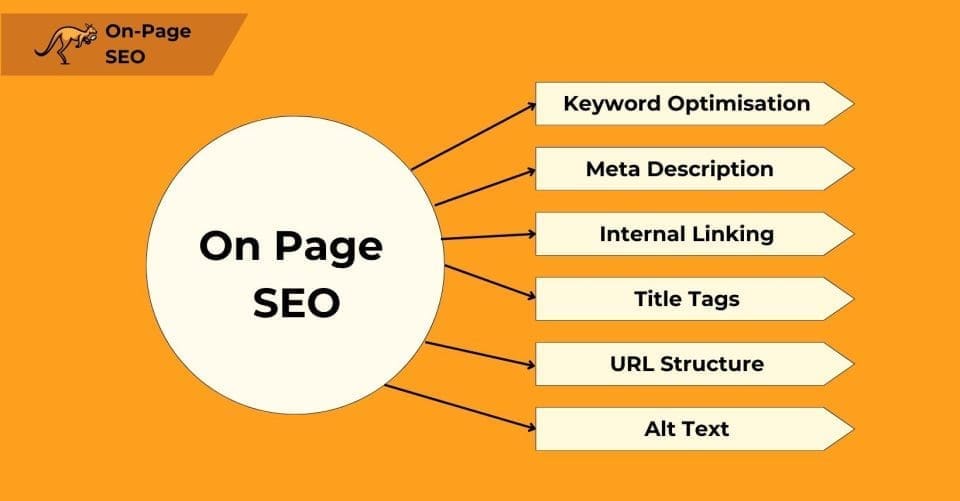
On-page SEO refers to improving your website’s search engine rankings, usually by making it more appealing to search engines and giving them a reason to rank it higher.
While SEO and search engine algorithms can be complicated, search engines understand what makes a website “good.” There are a lot of factors that influence a website’s visibility, and many of them are tied to the site itself. So, improving the site can improve your SEO in the long term.
On-page optimization significantly enhances a website by refining its elements for SEO benefits. Effective adjustments can boost organic search traffic without link building, establishing it as an important component of a strong SEO approach. This introduces the next discussion on On-Page SEO Factors.
What are the On-Page SEO Factors?
Even before you get other websites involved for off-page SEO techniques, you want a solid foundation to work with. On-page SEO forms the basis of your overall SEO strategy, and any major changes to your site can fundamentally alter how and why you rank for different search terms or audiences.
On-page SEO covers many major ranking factors for search engine results pages, most of which will apply to your site even if you do not want them to. These factors directly influence your website’s online visibility and how search engines understand it and decide how to present it. Some of these factors include:
Core Web Vitals
The core web vitals are Google’s overall metrics for tracking a site’s user experience. This means things like the site’s visual quality and stability, its interactivity, and even its loading times. Good web vitals mean that the site itself is pleasant to use and does not have any major technical flaws.
No search engine wants to put bad-quality sites on their search engine results pages, so technically flawed or poorly designed sites will see a drop in rankings. The more quality your site offers, the more willing search platforms will be to rank it highly.
Mobile Compatibility
Sites that are more mobile-friendly also tend to rank higher since many search engines consider this. This makes your site more likely to appear for mobile users and users in general since it serves as a mark of care and attention.
This does not just mean sites that can run on a mobile device but also how well they do – responsive designs, easy navigation, and fast loading times are key.
Title Tags
The page titles you use on your site can also dramatically influence your search engine rankings. The title of each web page in the HTML code directly impacts the page’s relevancy to exact content, including the page’s content itself.
A page will appear more often when a user searches for relevant keywords, and putting those keywords in the title tag can substantially impact this. Title tags will appear more frequently for relevant search queries, so optimizing your title tags can matter.
For example, even creating distinct title tags for other pages can help since there is less overlap. The more detailed and relevant these tags are, the more likely they are to appear for the right searches.
Headers
While title tags are important, headers can also matter. These are important for marking out different segments of your content and can also help you appear in the right search rankings.
For example, suppose your site has headings based on exact questions or terms that users might be searching for. In that case, it is more likely to appear for them – even if that term is not necessarily part of the article’s main title.
Meta Tags
Meta tags, like meta descriptions, are HTML code additions that describe a page’s content and purpose. They influence relevancy and appear on search engine results pages, so it can be extremely important to get them right.
Again, adding relevant keywords will influence the page’s rankings. However, you also want to make them eye-catching since a good description will tempt more users to click on your listing in the search engine results pages rather than a competitor’s.
This can also apply to alt text for images. Alt text is useful for screen readers who need to interpret an image, but some search engines also consider alt text when determining the relevancy of content on a page.
Your Website’s Content
Content is a vital part of SEO and greatly impacts how search engines rank your website. Creating good-quality content is important, which usually means combining four things: uniqueness, usefulness, readability, and relevancy.
In simple terms, you want every piece of content to have value behind it, from blog posts to large-scale articles. This means content that offers something worthwhile and does not just copy from other sites or pages – ideally, something that would make other sites want to link to it as a resource or reference point.
Internal Links and Navigation
Internal links—links from one page on your site to another—help visitors navigate easily. They can also benefit the crawler/spider bots that search engines use to understand site layouts, so adding internal links can benefit SEO in some cases.
This also gives you a new place to put link anchor text, which can help search engines determine how relevant content is to each link. In certain situations, this might slightly improve your SEO results.
Effective navigation boosts a website’s SEO by simplifying user movement across the site, which can enhance its ranking for relevant keywords and searches. This aspect of on-page SEO directly influences a website’s visibility, setting the stage for our next discussion on Off-Page SEO.
What is Off-Page SEO?
Off-page SEO is all about SEO beyond the page itself, usually meaning things like link building and social media marketing. The process of off-page optimization involves identifying quality link opportunities, creating shareable content, building relationships with industry websites, managing online reputation, and monitoring backlink profiles, which boost SEO ranking factors without requiring any major changes to the page itself.
These are effectively the other half of SEO, and many people learn about them first. Off-page SEO refers to anything that uses “third-party” methods to boost your search engine rankings rather than the “first-party” techniques involved in improving your website’s code and assets.
While off-page SEO differs from on-page SEO by being more complex and less directly controllable, off-page SEO significantly influences your search rankings through external authority signals rather than internal content optimization. Off-page SEO demands comprehensive planning, as its impact on ranking success is substantial despite occurring outside your website’s domain. To understand this aspect further, we’ll now explore the Off-Page SEO Factors.
Off-site optimization is often used interchangeably with off-page optimization, though some SEO professionals make a slight distinction. Off-site optimization specifically refers to activities conducted on external websites and platforms, which includes link building, guest posting, and social media engagement, while off-page optimization encompasses all SEO activities that happen outside your website’s boundaries including offline brand-building efforts that impact online presence.
What are the Off-Page SEO Factors?
While on-page SEO refers to many technical SEO techniques, such as mobile friendliness or tweaking the HTML source code, off-page factors focus more on engagement. With off-page SEO, you are trying to direct relevant traffic to your website in ways that will make people visit.
Most off-page SEO strategies aim to increase organic traffic, naturally directing visitors to a website. While on-page efforts like crafting high-quality content are beneficial, off-page SEO is important for promoting this content to a broader audience. This importance highlights the need to explore the factors of Off-Page SEO, which we will discuss next.
Backlinks
Backlinks are incoming links that your site gets, either earned naturally or by direct link building. If they come from trusted and relevant websites and are connected to relevant keywords, they greatly impact your SEO.
Search engines treat backlinks as a major part of ranking a site in search results, so improving your backlinks is vital to ranking higher. This is because they pass along some “link juice” – the linking site’s authority – which boosts your website’s authority and rankings for relevant terms.
Link building refers to “building” links artificially, usually through methods like guest blogging to put linked guest posts on other websites. As long as the target keywords are correct and they reach the relevant traffic, these guest posts can bolster your SEO overall.
Bad Links
Not all backlinks are good. Search engine bots recognize when a link comes from a poor-quality site or an irrelevant page, and part of off-page SEO is knowing when to cull these links. Spammy or poor-quality links may damage your overall search engine optimization results.
While a good mix of backlinks is important if you want to rank higher, sometimes removing bad or irrelevant links can nudge you to higher positions in search engine results. The less relevant and trustworthy a site is, the less value its links will have, even if that pushes it into the negatives.
Unlinked Brand Mentions
Some search engines, such as Google, treat mentions of your brand as a link even if there is not a link. Suppose other websites are talking about your brand and product. In that case, they can boost your rankings before you approach them for an off-site SEO-boosting link.
Of course, the benefits are very minor here. For a successful SEO strategy, it is still best to turn these mentions into targets for guest blogging or other link-building strategies since direct links from other websites will almost always be better.
Social Media Marketing
Social media marketing can help you target keywords effectively and draw in an exact audience as organic traffic while sometimes letting you rank higher in search results. Good social media marketing can place your brand in front of more web users and allow you to engage with them directly.
While social media may not be among the direct off-page SEO ranking factors, it still influences your off-page SEO results. Good search engine optimization is about using all of the tools you have available.
Business Listings
Listing and profiles, such as Google My Business or the equivalents on other platforms, can be surprisingly powerful. A well-prepared Google business profile can display your business on the side of a search if users are looking it up, effectively giving you entirely new search page elements to work with.
Placing your site on more business listings, in general, also means more incoming links and can make your site appear in more search results when users are looking up services like yours. Even if it is not your site, having something related to your business appear higher up can draw in more traffic.
Using Off-Page and On-Page SEO
Both on-page and off-page optimization work together as complementary forces that collectively determine your search visibility. On-page optimization establishes relevance through content and technical elements, while off-page optimization builds authority through external signals, which together create a comprehensive SEO strategy that search engines reward with higher rankings. Everything from your internal linking structure and meta description details to targeted keywords and web host quality can influence whether you appear in high search engine rankings.
Good on-page and off-page SEO both require some common sense. The best on-page and off-page optimization comes from helping search engines understand your site, how good its content is, and which search engine results pages it should appear in—then trying to climb the ranks.
For example, search engine optimization focuses heavily on external and internal linking. Common sense applies here: a blog post that has nothing to do with your business will not provide any real off-page SEO benefit, whereas highly relevant web pages will boost off-page optimization.
Start Small
Both on-page and off-page optimization can be tricky if you rush into them. However, neither on-page nor off-page optimization relies on fast-paced tweaks. Search engine result pages only update when crawlers run through your site, so you have much time to optimize your web pages.
Tackling smaller on-page factors and off-page optimization options (such as image optimization and local SEO link building) can form a strong foundation. From there, both on-page and off-page optimization can be gradually built up as you discover new ways to push yourself higher in the rankings.
Use Data
Both on-page factors and off-page optimization can be very data-driven. From the keywords used in meta descriptions to the performance of individual web pages, you will get the best on-page and off-page SEO results if you use real data to back up your choices.
For example, suppose your site performs poorly on mobile devices. In that case, you may need on-page SEO work to optimize its mobile friendliness. Suppose your off-page SEO data shows users are not clicking on your pages. In that case, the meta descriptions are not drawing them in or being shown on other pages of your site that do not relate to their exact search terms.
Monitor Search Engine Rankings
Keep track of your SEO success. If you do a meta description overhaul or other types of on-page optimization, try to see how it impacts your overall SEO results. This will tell you whether or not the on-page optimization was a success.
By looking at the data and success surrounding your SEO, you can understand whether certain tactics are working. This makes it much easier to identify areas of improvement or roll back choices that do more harm than good.
Understand Search Engines
While few search engines make their algorithms completely known, you can still learn how they work.
For example, you might see patterns in how on-page optimization and internal linking influence your rankings, which can alter how you approach internal links in the future. This would fundamentally change the way you are tackling internal links, even if it is only in a very slight way.
Different search engines utilize distinct algorithms, leading to varied effects on website rankings through similar SEO tactics. While successful on-page and off-page strategies generally enhance platform rankings, the extent and manner vary. Thus, prioritizing search engines that align with your goals is essential. This strategic focus sets the stage for our discussion on Ranking Higher in Search Engine Results Pages.
Ranking Higher in Search Engine Results Pages
You will probably have gotten the broad strokes idea behind both on-page and off-page search engine optimization. While there are better ways to approach either on-page or off-page optimization perfectly, applying some common sense can point you in the right direction.
Remember that SEO is very focused on trial and error. If something does not work, there is always a reason for it, from keywords and metadata to backlinks and search crawlers.
Take time to understand SEO and how it can apply to your site. Always tweak anything that needs fixing. Experimentation can propel you to entirely new heights of success.
Summing Up: Key Strategies for Effective SEO
Mastering both on-page and off-page SEO is essential for enhancing your website’s visibility and achieving higher rankings in search engine results pages. On-page optimization impacts rankings by signaling relevance and content quality to search engines, while off-page optimization influences rankings by demonstrating authority and trustworthiness through external validation, which together determine how search engines evaluate and position your website.
By understanding and applying the right techniques within each category, you can optimize your site to meet search engine criteria better and attract more organic traffic. On-page and off-page optimization serve as the foundation of successful SEO, which enables websites to establish topical authority, build credibility with search engines, and create sustainable organic traffic growth that competitors cannot easily replicate.
Remember, effective SEO is not a one-time effort but a continual process of refinement and adaptation. Stay informed, monitor your progress, and adjust your strategies to keep climbing the ranks and reaching your target audience more effectively. As you refine your SEO approach, you improve your site’s searchability and set the stage for sustained online success.
